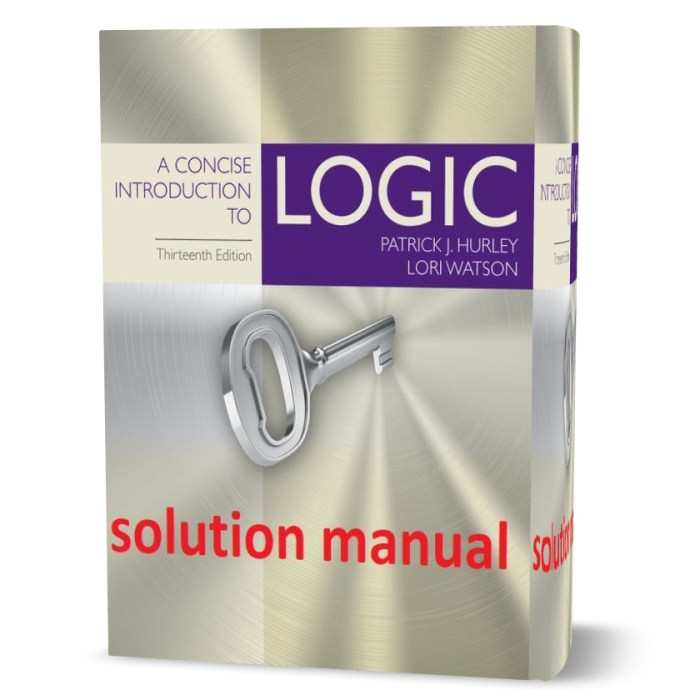A concise introduction to logic 13th edition pdf – Introducing the 13th edition of “A Concise Introduction to Logic,” this comprehensive guide offers an accessible and engaging exploration into the fundamentals of logical reasoning. With its clear explanations and practical examples, this authoritative text provides a thorough understanding of logic’s history, principles, and applications.
Delving into the core concepts of logic, the book covers propositional and predicate logic, exploring their symbols, truth tables, and quantifiers. It illuminates the intricacies of logical arguments, their validity, and their role in everyday decision-making and problem-solving.
1. Introduction to Logic: A Concise Introduction To Logic 13th Edition Pdf

Logic is the study of reasoning and argumentation. It provides a framework for understanding and evaluating the validity of arguments, and for constructing sound arguments of our own.
The history of logic dates back to ancient Greece, where philosophers such as Aristotle developed formal systems of logic. These systems have been refined and expanded over the centuries, and logic is now used in a wide variety of fields, including philosophy, mathematics, computer science, and law.
Logic can be used to analyze arguments in everyday life, such as those we encounter in conversations, debates, and advertisements. By understanding the principles of logic, we can better evaluate the strength of arguments and identify fallacies.
Propositional Logic
Propositional logic is the study of logical connectives, such as and, or, and not. Propositional logic can be used to represent and evaluate compound propositions, which are propositions that are formed by combining simpler propositions using logical connectives.
Truth tables are a useful tool for evaluating compound propositions. A truth table shows the truth value of a compound proposition for all possible combinations of truth values of its component propositions.
Predicate Logic, A concise introduction to logic 13th edition pdf
Predicate logic is an extension of propositional logic that allows us to express more complex statements. Predicate logic includes quantifiers, such as for all and there exists, which allow us to make statements about all or some members of a set.
Predicate logic can be used to represent and evaluate arguments in a wide variety of domains, including mathematics, science, and philosophy.
Applications of Logic
Logic has a wide range of applications in various fields, including:
- Computer science: Logic is used in the design and implementation of computer programs.
- Mathematics: Logic is used to develop and prove mathematical theorems.
- Philosophy: Logic is used to analyze and evaluate philosophical arguments.
Logic can also be used to solve problems and make decisions. By understanding the principles of logic, we can better identify and evaluate the strengths and weaknesses of different options, and make more informed decisions.
Frequently Asked Questions
What is the primary focus of “A Concise Introduction to Logic: 13th Edition PDF”?
The book provides a comprehensive overview of the principles and applications of logic, covering propositional and predicate logic, truth tables, quantifiers, and logical arguments.
How does the book approach the study of logic?
The book takes a structured approach, explaining the historical development of logic and its symbols, and demonstrating their use in evaluating arguments and solving problems.
Is the book suitable for both beginners and advanced learners?
Yes, the book is designed to be accessible to students with varying levels of familiarity with logic. It provides clear explanations and examples, while also exploring more advanced concepts for those seeking a deeper understanding.